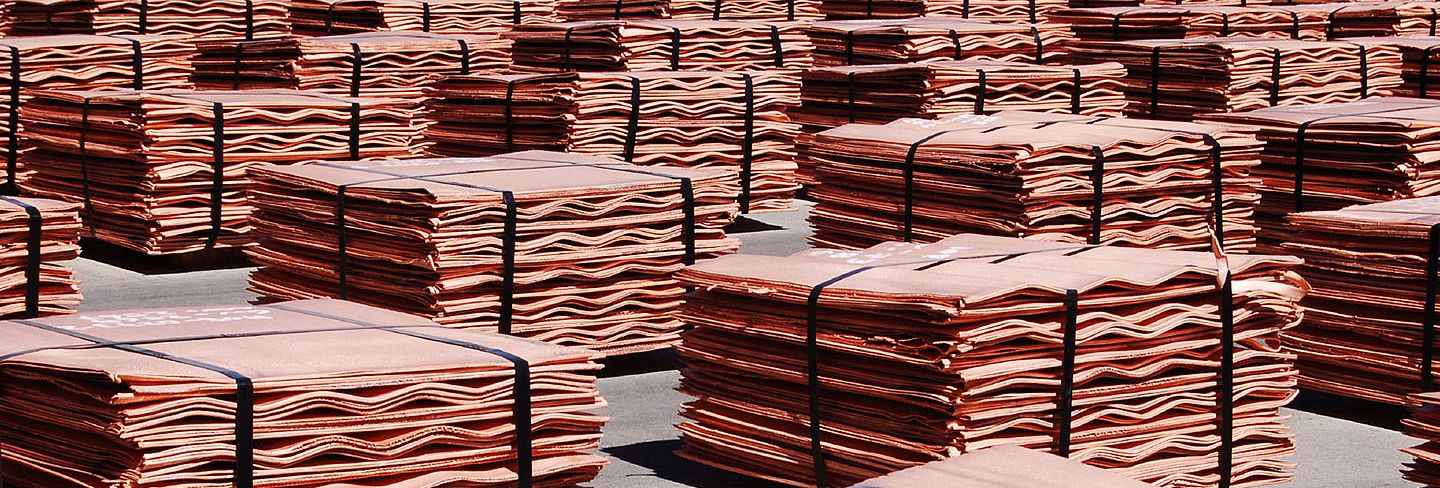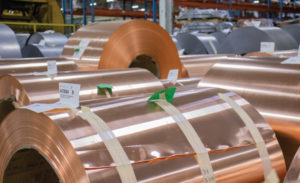Exploring the Versatility and Durability of Cutting-edge Copper Products in Modern Style
Exploring the Versatility and Durability of Cutting-edge Copper Products in Modern Style
Blog Article
Discovering the Diverse Applications of Copper Products in Modern Industries
From improving the performance of electrical systems to playing a crucial role in eco-friendly energy innovations, the convenience of copper is obvious. As markets progressively focus on advancement and sustainability, the varied applications of copper warrant a closer exam, specifically concerning their potential influence on future environmental methods and technological improvements.
Electrical Applications of Copper
Copper is a necessary product in the electrical industry, representing approximately 60% of the total need for non-ferrous metals globally - Copper Products. Its exceptional electric conductivity, which is almost two times that of aluminum, makes it the favored selection for a large range of electrical applications. From circuitry systems in property and commercial buildings to high-voltage power transmission lines, copper makes certain effectiveness and reliability in electricity shipment
Along with circuitry, copper is essential to the production of electric elements such as electric motors, generators, and transformers. These elements leverage copper's thermal conductivity and pliability, crucial for warm dissipation and effective performance. Additionally, copper's resistance to deterioration enhances the lifespan and resilience of electrical systems, making it a cost-effective remedy in the lengthy term.
The growth of renewable power sources, such as solar and wind power, has further raised the need for copper in electrical applications. As sectors change towards lasting power remedies, copper's duty comes to be a lot more essential. Generally, the flexibility and efficiency qualities of copper solidify its status as a keystone material within the electric market, driving technology and efficiency throughout various applications.
Plumbing and Piping Solutions
In contemporary pipes systems, the selection of materials substantially influences both performance and longevity. Copper has become a favored choice due to its one-of-a-kind buildings, consisting of deterioration resistance and antimicrobial characteristics. These characteristics make certain that copper piping stays safe and durable for delivering safe and clean water, a vital consideration in residential and industrial applications.
One of the key advantages of copper in pipes is its capability to hold up against high temperature levels and pressures, making it suitable for a selection of applications, from hot water systems to heating and cooling networks. In addition, copper's adaptability enables less complicated installation in complicated piping layouts, decreasing the risk of failings and leaks.
One more noteworthy advantage is copper's lengthy life expectancy, frequently exceeding half a century with correct maintenance. This longevity not just reduces substitute costs however likewise contributes to sustainable techniques by lowering waste. In addition, copper's recyclability lines up with modern environmental requirements, advertising a round economic climate within the pipes market.
Copper in Renewable Resource
The versatility of copper extends past plumbing applications, playing a crucial role in the renewable energy industry. In solar panels, copper is made use of in photovoltaic cells and electrical wiring, assisting in effective energy conversion and transmission.

Moreover, as the international demand for electric cars (EVs) rises, copper's role in battery systems and charging infrastructure comes to be much more substantial. The product's ability to conduct electrical energy efficiently is indispensable to the efficiency of EV batteries, improving array and charging speed.
Copper's Function in Electronics
Electronics making relies heavily on copper's remarkable residential or commercial properties, specifically its high electrical conductivity and thermal effectiveness. These qualities make copper a suitable option for a variety of digital parts, consisting of ports, circuit boards, and electrical wiring. The metal's capability to successfully transmit electrical signals makes certain click here for more info marginal power loss, which is vital in high-performance digital devices.
Moreover, copper's thermal conductivity plays a significant role in warm dissipation, securing delicate elements from overheating. This is especially important in modern electronics, where portable layouts result in enhanced warm generation. Copper is additionally favored for its malleability and ductility, allowing it to be conveniently shaped right into intricate designs that fulfill the needs of sophisticated digital applications.
With the increase of consumer electronic devices, telecommunications, and electrical automobiles, the need for copper in the electronics field remains to expand. As developments in technology progress, copper continues to be indispensable to accomplishing higher efficiency and dependability in electronic items. Its recyclability even more improves its appeal, as makers look for sustainable solutions without compromising top quality. Therefore, copper remains a keystone product in the ever-expanding field of electronic devices.
Innovative Makes Use Of in Production

One notable application is in additive manufacturing, where copper-based materials are used in 3D printing procedures. This allows for the development of intricate geometries and light-weight parts, particularly in the aerospace and auto industries. In addition, copper's thermal conductivity makes it a suitable selection for warm exchangers, boosting effectiveness in commercial cooling systems.
In addition, my response the increase of clever manufacturing has seen the consolidation of copper in IoT tools, where its conductive abilities sustain innovative picking up innovations. In the world of eco-friendly energy, copper is critical in the production of photovoltaic panels and wind generators, facilitating much more reliable energy conversion and circulation.
As markets pursue sustainability and technology, copper's flexibility and efficiency proceed to position it as an essential product, driving innovations in manufacturing and adding to the advancement of smarter, a lot more efficient products.
Final Thought
In summary, copper products demonstrate impressive versatility across various contemporary markets. Copper Products. Their premium conductivity boosts electrical applications, while deterioration resistance guarantees reliability in plumbing. The indispensable function of copper in sustainable power and its essential feature in electronic devices highlight its relevance in progressing lasting practices. In addition, cutting-edge uses in manufacturing highlight copper's flexibility and enduring significance. Jointly, these applications highlight copper's crucial contribution go to website to technological progression and industrial efficiency in modern culture.
From boosting the effectiveness of electrical systems to playing a vital role in renewable power modern technologies, the versatility of copper is noticeable. As industries increasingly prioritize technology and sustainability, the diverse applications of copper necessitate a closer evaluation, specifically regarding their potential impact on future environmental methods and technological improvements.
The development of renewable power resources, such as solar and wind power, has additionally enhanced the demand for copper in electrical applications. Generally, the adaptability and performance attributes of copper strengthen its condition as a cornerstone material within the electrical field, driving technology and performance throughout various applications.
The convenience of copper expands past pipes applications, playing an essential function in the eco-friendly energy market.
Report this page